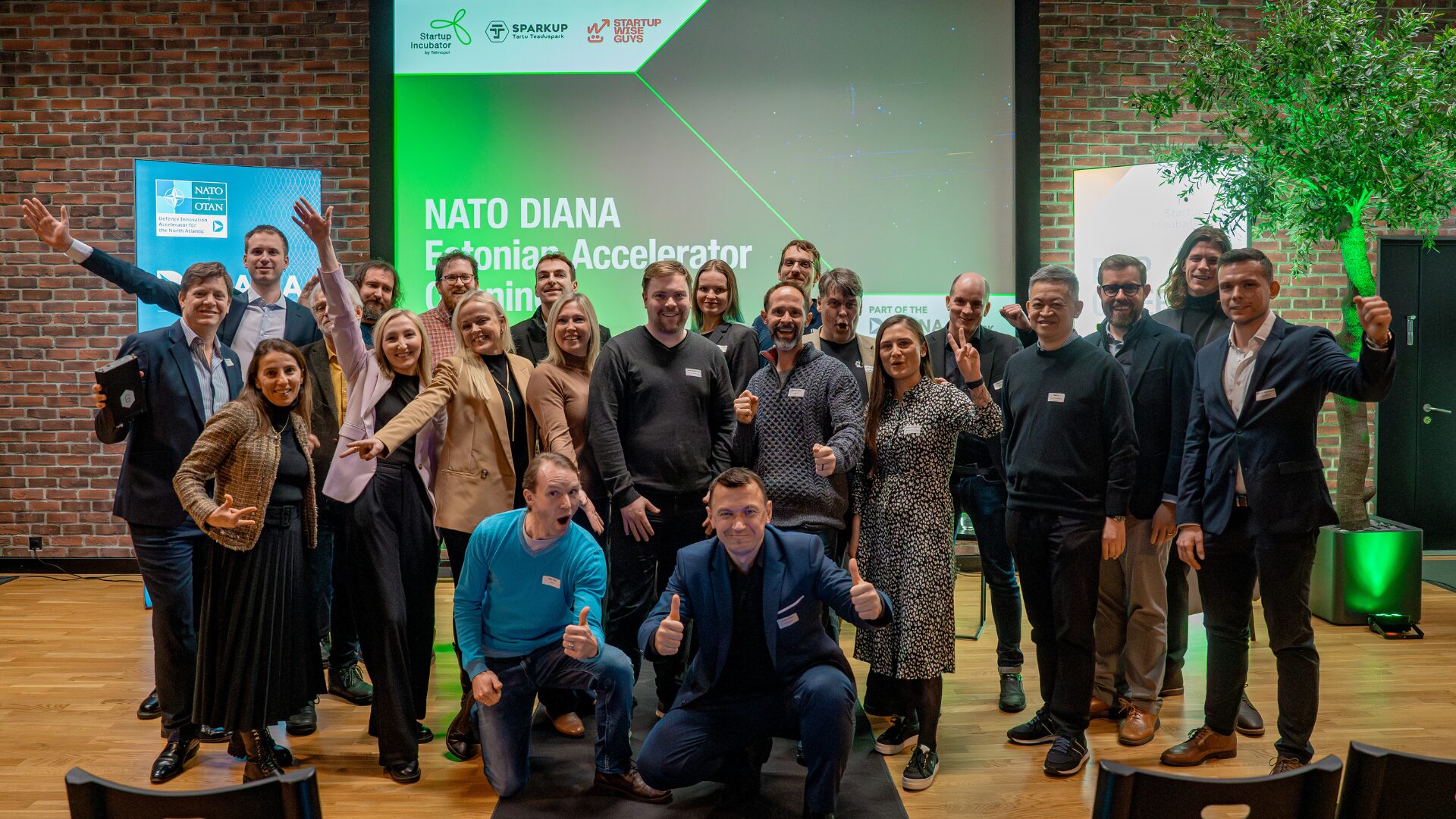26.06.2024
Open call and new challenges of NATO DIANA will be announced in the first week of July

Last year, over 1300 companies applied to the NATO DIANA innovation accelerator, with 44 being accepted, and 9 of them selected for the DIANA Estonian Accelerator. While last year sought innovative technological solutions for three challenges, this time, five challenges will be announced, and a larger number of companies will be accepted.
Last year’s challenges covered energy, communication, and surveillance topics. These challenges will continue this year, with two entirely new ones added. If your company didn’t make it into the accelerator last year, it is definitely worth trying again this time.
Startups from across the alliance that develop technologies with applications in both civilian and defence sectors are welcome to apply. All companies accepted into the accelerator will receive a grant of 100,000 euros, with the selected ones having the chance to receive up to an additional 300,000 euros. Additionally, they will gain access to more than 180 testing centres, a program bridging defence and business sectors, and a network of top mentors from across the alliance.
The DIANA accelerator aims to support deep tech startups contributing to national security and defence by connecting talented innovators with end-users of new technologies. The accelerator allows startups from both Estonia and other NATO member states to develop their products and business models and find partners in the alliance-wide defence market, which is typically closed and has high entry barriers.
The next call for applications and the critical challenges for the defence sector, for which technological solutions are expected, will be announced in the first week of July. Applications can be submitted until early August, and the 6-month accelerator will start in January 2025. Applications are open to dual-use deep tech companies registered in any NATO member state. More information and applications: https://www.diana.nato.int/
Company from the first batch: The program has been pure gold for us
Last year, one Estonian company, the Tartu startup GaltTec, was among those who made it through the tough competition to join the DIANA accelerator. The company produces fuel cells and fuel cell materials based on patented technology, which are exceptionally small and powerful compared to other technologies on the market. According to GaltTec’s CEO Glen Kelp, the NATO DIANA accelerator has been a true springboard for boosting the company’s operations. “The intensive yet meaningful program has been pure gold for a startup like ours and a fast track to understanding the specifics of the defence industry. The contacts we have made through the program have already positively impacted our business activities,” said Kelp.
Stephen Kines, CEO of the UK company Goldilock, which also joined the NATO DIANA Estonian accelerator last year, said that before the NATO DIANA program, they were not fully aware of the dual-use potential of their solution. “We have participated in various top-level accelerator programs, but DIANA stood out with the unique quality of its mentorship and stakeholder engagement, enabling us to develop our dual-use strategy and technology to meet the desired goals. The team of Tehnopol has been incredibly professional, ensuring not only that we get the most out of the program but also that the entire group worked together as a team to find common solutions,” said Kines. Goldilock develops a patented cybersecurity tool for protecting critical assets and data.
The NATO DIANA Estonia accelerator is managed by the Tehnopol Startup Incubator in cooperation with the Sparkup Tartu Science Park and the Startup Wise Guys business accelerator. The implementation of the accelerator in Estonia is funded by the Ministry of Economic Affairs and Communications and supported by the Ministry of Foreign Affairs, the Ministry of Defence, and the City of Tallinn. The alliance-wide network of testing centres in Estonia includes contributions from TalTech, the University of Tartu, CR14, the Estonian Military Academy, the Estonian Academy of Security Sciences, the Estonian Aviation Academy, and Metrosert.
Watch a video about the companies from the first batch of the NATO DIANA Estonian Accelerator!

















